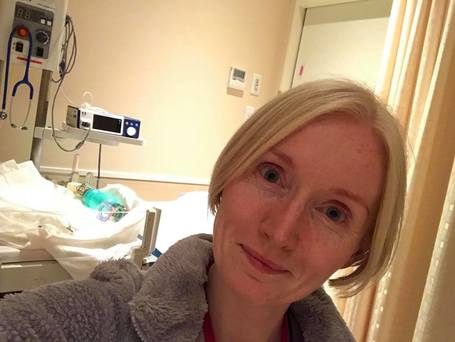 Where do you originate from? I’m originally from the UK - a town called Ilford, Essex which is also in the Greater London area. It’s quite a typical British town really and somewhere that has always been popular with immigrants due to its closeness to London. When did you last live in the UK? I last lived there in 2000. That’s the year I came to Japan. Did coming from an area with so many different cultures give you the idea to see more of the world? Perhaps that’s more to do with my own background. My mother is Polish and she came to the U.K. in her mid-twenties (back during times where it was actually quite difficult to travel because of communism). So seeing more and wanting to experience more of the world has always been part of her story that I knew. I never thought I’d settle in Japan, though. I saw myself more as someone suited to Europe...but I’ve always felt comfortable here. Do you speak Polish? Only very basic Polish. I could speak much more as a child thanks to holidays in Poland and my mum speaking to us in Polish. As children, my sisters and started to refuse to speak Polish, though, as all our friends spoke English and our family language was English. We also refused to go to our Saturday Polish school. If the 3 of us, my Polish stayed the strongest as I was the oldest, and listening-wise I can understand a decent amount, but my spoken Polish is low. I actually still find Polish more familiar to listen to (I guess what you hear and are exposed to in the formative years is really important). I guess my spoken Japanese is stronger, though. Tell us a bit about how you came to Japan? I originally came to Japan to teach English in a conversation school. My degree was in English and I thought I’d better make some sort of use out of it. Before coming to Japan, I’d been working as a fitness instructor (my passion back then) but I hurt my back quite badly by over doing things and that’s when I thought I should do something less physically demanding on my body. I saw an ad to teach English in Japan in the newspaper and applied quite on a whim. Japan had never been a consideration at all before that. I got hired by the English conversation school company (GEOS) and then 3 months later I was in Japan. Tell us about your Tokyo family. I live with my Japanese husband and our 3 sons (10, 7, and 4). 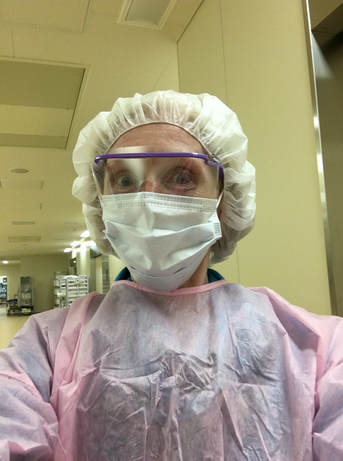 It’s big step from being an English teacher to becoming a Doula. How did you get into that line of work? It was really my experience in labour with my first son, as figuring out my way as a new mother, that was the catalyst. That labour was tougher than I ever imagined it could be and while it went fine, I felt scared and very overwhelmed through it all. It was afterwards, through Tokyo Mothers Group which I started running after he was born, that I met someone who was a Doula and what she did really resonated with me. I felt that emotionally and mentally I’d have coped a lot better with labour if I’d had someone there to encourage and motivate me (as well as reassure my husband)! The word Doula actually means “woman who serves” or “woman servant” - derived from Greek. So we are there to serve the needs of the woman in labour. For anyone who doesn’t know what a Doula does, can you explain the job? A Doula is like a birth coach. Someone who is their for both parents in labour to offer practical advice and emotional and physical support. We help with breathing techniques, positions, massages and other comfort measures, as well as offer reassurance (to both mum and dad), encourage the mum when things are getting challenging and provide motivation to try certain things to get things going more effectively in labour. For the dad, we can help him become more involved if he is feeling like a spare part or not sure how to help (she can give suggestions). We can also help advocate for what the mum would ideally like to have (or not have in labour), and also do birth photography and videos for those who request. There’s so much involved and each couple and each labour is different! Do you mainly work with international families? Yes, exclusively with international families. 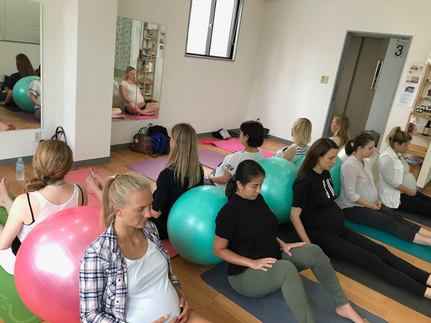 On average how many families/ couples do you support in labour each year? It can vary, but 17–18 on average. This year looks like it will be more already. There are waves of busy periods just like contractions. I work 10 months of the year with the summer months off while I’m back in the U.K. It must a terribly rewarding job but tough on your family at times when Mummy disappears in the middle of the night. How do you cope with that aspect of your work? Yes, the unpredictability of the job is not for everyone and I think it only works because my husband also works for himself so has a fair amount of flexibility, too. My kids actually don’t seem too bothered by me suddenly needing to leave - they are used to it now. My clients are all good at giving me a heads-up, too, so that it’s not too sudden. 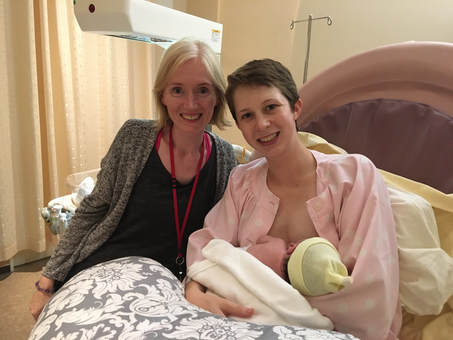 Do you keep in touch with the clients after they give birth and get updates on the babies as they grow? Yes, there are some clients I’ve stayed quite close to and others who are less close (as with any relationship you can definitely form closer connections with some people). But I’m usually in touch by Facebook or email seeing how the babies/children are doing. And finally, are there any groups or forums you can recommend for new parents in Tokyo? So many - definitely Tokyo Mothers Group (website and Facebook). From there, it’s very easy to find and connect with others living near to you and also find out if there are other more local groups around (such as your Inokashira Odakyu Parents group). Lots of our members have their own blogs (related to having a family in Tokyo) and playgroups, too, and we keep a fairly up-to-date list on the website. For more information, contact Stephanie here: Tokyo Doula Support Tokyo Mothers’ Group on Facebook Tokyo Mothers’ Group website Tokyo Pregnancy Group
0 Comments
Your comment will be posted after it is approved.
Leave a Reply. |
HI THERE
I'm Victoria, the founder, designer and creator at Bikudesigns, a vintage kimono accessories brand in Tokyo, Japan. Categories
All
Archives
July 2024
|
ABOUT
|
POLICIES
|
GET IN TOUCH
|
|
Proudly powered by Weebly

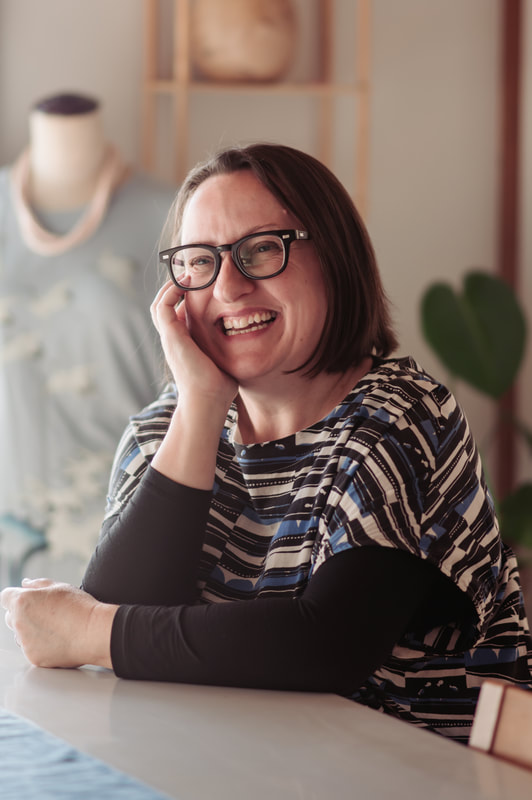
 RSS Feed
RSS Feed